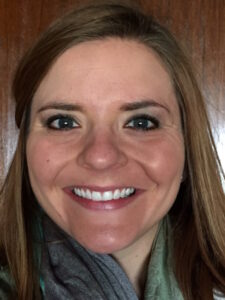According to the American Speech-Language and Hearing Association (ASHA), aphasia is a speech and language disorder caused by neurological damage. Strokes are the leading cause of aphasia, but aphasia can also be the result of a brain tumor, traumatic brain injury, and progressive neurological disorders. It impacts how an individual speaks, listens, reads and writes¹.
In my 3 years as a speech language pathologist (SLP), I have had the pleasure of working with individuals with aphasia. All of these people have unique personalities and life experiences, but the impact of aphasia has also varied greatly. In one person the impact of aphasia was very minimal, and in another very debilitating. The symptoms often depend on where the neurological event has occurred in the brain, as well as the severity of the event. A SLP can determine the type of aphasia that is occurring by analyzing an individual’s signs and symptoms.
According to ASHA some of the signs and symptoms of aphasia include: ¹
- “Choppy” or non-fluent speech, but able to understand what others say fairly well.
- Speech that may sound normal in rate and rhythm, but may contain wrong or made up words.
- Difficulty producing language which may include: Difficulty coming up with words, substituting one word or sound for another, using made up words.
- Difficulty understanding language including: misunderstanding what others say especially when they speak too fast or use long sentences, difficulty understanding speech with background noise, misinterpreting jokes and figurative language.
- Difficulty reading and writing including: Difficulty reading forms of literature, problems spelling and putting words together, difficulty with number concepts (telling time, adding/subtracting).
Therapy is individualized to help patients meet their communication goals with caregiver support and education being a part of patient success and independence. The National Aphasia Association has suggestions on how to better communicate with those with aphasia and also increase his/her independence, some of them are: ²
- Have the person’s attention before you start and minimize/eliminate background noise (TV, radio, other people).
- Keep your sentences simple, but adult and slow down your rate. However, still maintain an adult conversation.
- Resist the urge to finish his/her sentences and give them time to respond.
- Use other modes of communication to supplement verbal speech (drawings, pictures, objects, gestures) and use yes/no questions to check for understanding.
- Praise independence and attempts at communication. Get the individual involved in normal daily conversations/activities and avoid being overprotective.
There are many resources available for individuals with aphasia and their caregivers. For more information and resources, go to National Aphasia Association- Find Support.
At Live Your LifeTM we offer comprehensive speech-language therapy in order to help individuals be independent and meet their communication goals. We also offer caregiver education and support.
 Rachel Wieneke, M.A., CCC-SLP is a Speech Language Pathologist with Live your LifeTM. She has experience in providing speech therapy to adolescents and adults, with increased focus in providing intervention for a receptive-expressive language, swallowing and cognition. Rachel is also certified in VitalStim Therapy which allows her to utilize neuromuscular electrical stimulation with her swallowing therapy.
Rachel Wieneke, M.A., CCC-SLP is a Speech Language Pathologist with Live your LifeTM. She has experience in providing speech therapy to adolescents and adults, with increased focus in providing intervention for a receptive-expressive language, swallowing and cognition. Rachel is also certified in VitalStim Therapy which allows her to utilize neuromuscular electrical stimulation with her swallowing therapy.
References
1Aphasia. http://www.asha.org/public/speech/disorders/Aphasia/ Accessed May 29, 2016
2Communication Tips. http://www.aphasia.org/aphasia-resources/communication-tips/ Accessed May 29, 2016.
What makes us different? Our care comes to you!
View Our Service AreaWe Are A Comprehensive Mobile Company Focused on Wellness, Fitness, Rehabilitation, and Prevention
We specialize in transforming the lives of seniors, adults and teenagers with a wide array of diagnoses and conditions in their home or location of choice. You deserve to be your best self through good health and wellness. We would love to have the privilege to work with you or a loved one.
Request a FREE Consultation Today!
